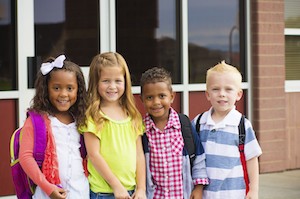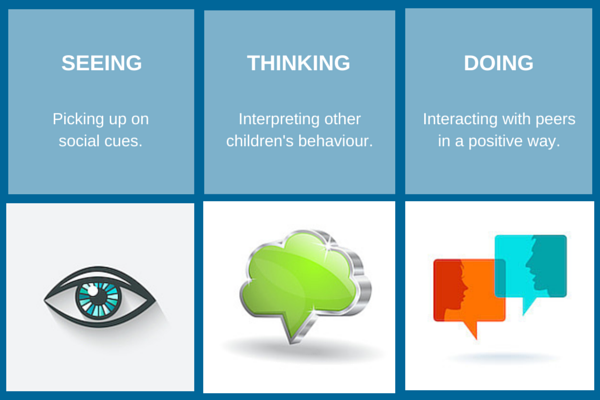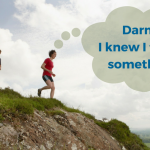People are not born leaders — but every leader was born. The best leaders have another thing in common, regardless of what sector, industry or professional field they work in, and that’s the ability to communicate effectively with people. Early childhood is the ideal place to begin an education in this essential leadership skill.
My kids are still quite young: Finley is 8 and Clara is 5. They certainly have their own distinct personalities already and I’m so curious to see how they will evolve; who they will become as adults.
And, like most parents, I feel the weight of responsibility, shared with my wife, in not making a complete mess of it all and end up sending them out into the world without everything they need to survive and thrive.
To them, however, their glorious futures are all set:

 Finley’s going to play professional baseball with the Red Sox and Clara’s going to have some yet-undefined career that revolves exclusively around Frozen (“Oh, sorry, sweetie, I think we left that CD at Grandma’s”).
Finley’s going to play professional baseball with the Red Sox and Clara’s going to have some yet-undefined career that revolves exclusively around Frozen (“Oh, sorry, sweetie, I think we left that CD at Grandma’s”).
Will these things come to pass? Maybe yes, maybe no. But that’s okay, there’s plenty of time for them to explore more things before they need to focus on getting any concentrated, career-specific education and training.
Like us, if parents of young kids want to maximize the chances of their kids being successful in the working world, no matter what kind of career the kids end up choosing, they will need to be able to communicate effectively with people — and learning those social skills has to happen now.
Because, according to most experts in child psychology and development, the window for learning these social skills starts to close pretty tightly around the age of 8.
Ways to Help Children Develop Their Social Skills:
Thankfully, there are a lot of well-informed experts in child psychology and development out there because that’s not my area of expertise … I know for a fact that even my becoming a parent had nothing to do with what’s on my resumé.
In their article, Social Skills: Laying the Foundation for Success, Sharon Lynch and Cynthia Simpson give a great definition of social skills:

“Social skills are behaviors that promote positive interaction with others and the environment. Some of these skills include showing empathy, participation in group activities, generosity, helpfulness, communicating with others, negotiating, and problem solving.”
Hmmm … sounds like hallmarks of a good leader to me.
The article goes on to provide great strategies that can be used at home, in school and in the community for helping kids develop their social skills, some of which could be applied in the adult workplace, too.
Psychology Today hosts a blog called Growing Friendships, written by Dr. Eileen Kennedy-Moore, which has a ton of helpful and interesting information about children’s social and emotional development.
In a 2011 post of hers, What Are Social Skills? Helping Children Become Comfortable and Competent in Social Situations, she explains three main processes that underly social skills for children — and adults alike:

It’s easy to see how these three things translate to the working world of adults. Dr. Kennedy-Moore goes on to say that, “Some kids seem to learn social skills very easily, but others can benefit from some extra coaching.” Same goes for current and aspiring leaders, my friends!
The parents of young children who strike while the iron’s hot and focus on developing their kids’ social skills in those crucial, early years, do their kids a big service.
Will doing so guarantee their kid a leadership role in the working world? No, but their kids will benefit from being able to embody a key part of leadership in whatever role they inhabit.
Am I doing a good job of this with my kids? I hope so. Let’s see what they’re like in another 15 years or so! With any luck, it won’t end up like this.
Part 2 of this series of posts on Leadership Education will focus on undergraduate options for those kids about to leave the nest. My hair will be even more grey when that happens for me … if that’s actually possible.
Leave a comment!
Not sure what to say? Answer one of these questions:
What strategies of yours have worked well in building your kids’ social skills?
What correlation do you see between your own childhood and how you embody your role as a leader?
What’s your favourite song from Frozen? (Besides the one you never have to hear again.)
Have a productive and enjoyable day.
— Brie




Regarding the question of what correlation I see between my own childhood and how I embody my role as a leader?
It boils down to the totality of my childhood experience. My father is an economist, my mother an educator. They instilled in me a foundation of good values — to care and be compassionate; to be honest and fair; and to treat people the way I wish to be treated. And all through my life, this has driven my interaction with people. Integrity means everything. It speaks to one’s capacity to always do the right thing… even when no one is looking. And this is backed by a strong work ethic, and an authentic desire to make a positive difference. This is how I see leadership as a parent, a community advocate, an entrepreneur, and as an overall engaged citizen.
Thanks for your comment, Fred. Parents truly are everyone’s defacto first mentors!